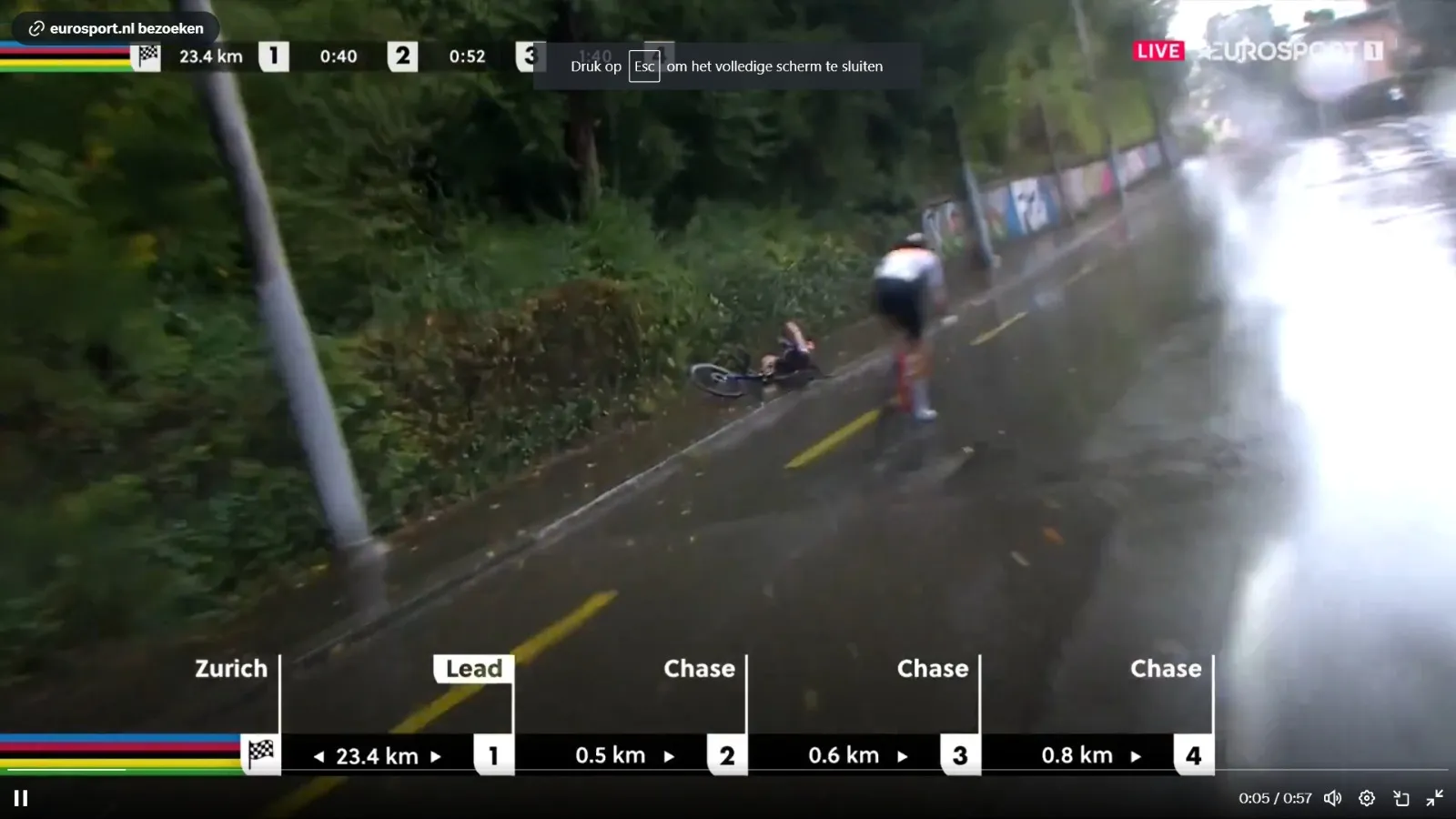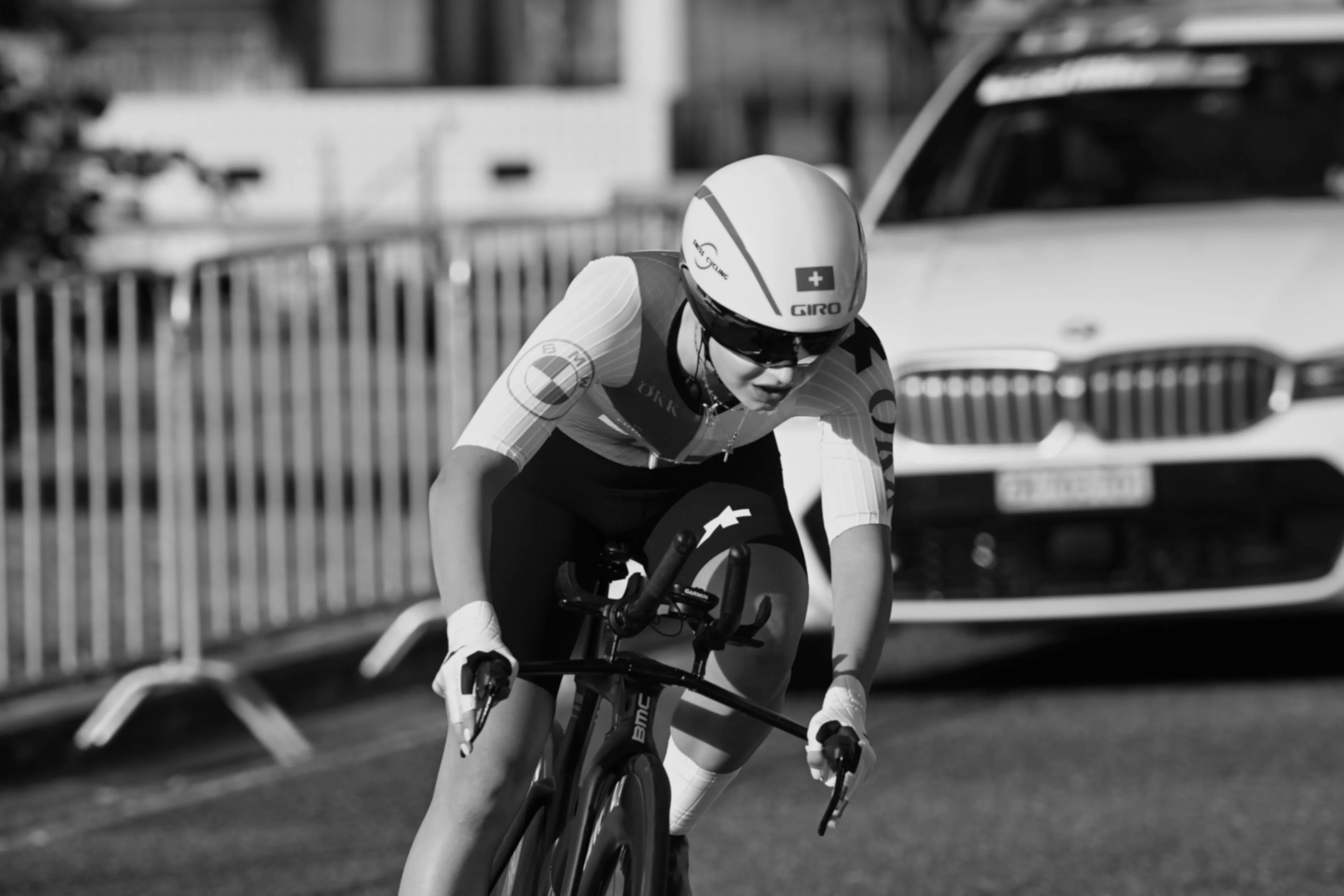Lappartient first to respond to questions on tragic World Championship accident: "She lived 2 kilometers from here..."
CyclingSaturday, 28 September 2024 at 12:23
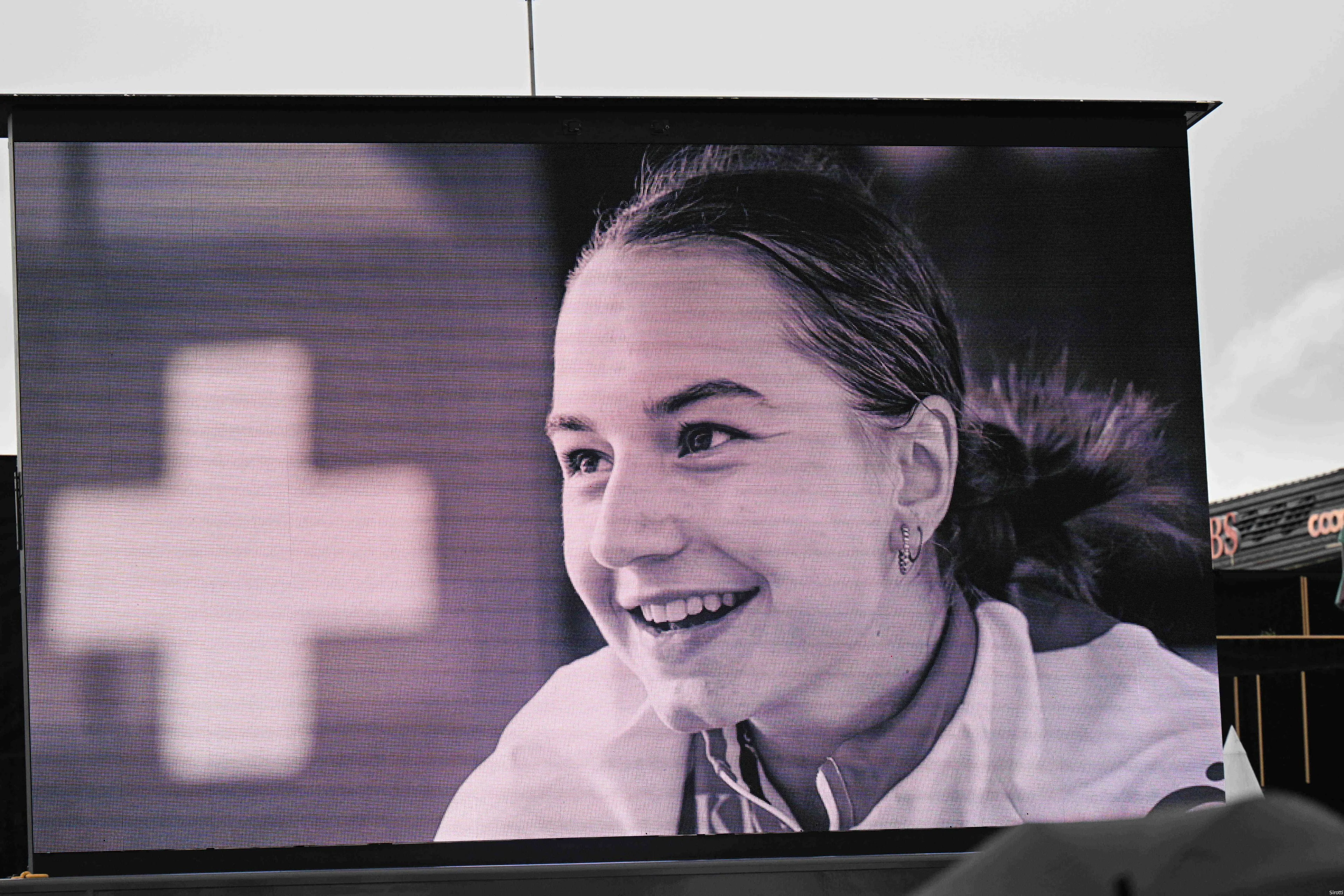
The death of Switzerland's Muriel Furrer hangs like a dark cloud over
the World Cycling Championships in Zurich. Friday afternoon, Peter Van Den Abeele (UCI) and organizer Oliver Senn could not release much about the tragic accident; Saturday morning, UCI president David Lappartient opened up a little more. The Frenchman expressed his willingness to answer (almost) all of the subject's questions, although he is also still awaiting the police report.
ADVERTISEMENT
Furrer died Friday after crashing in the junior road race on Thursday. The 18-year-old Swiss was airlifted to Zurich Hospital with severe brain injuries, where medics were unable to do much more. She died on Friday, suddenly changing the face of the World Championship in Alpine country. The event goes ahead at the family's request, which Lappartient said was not an issue either.
Read more below the photo!
ADVERTISEMENT
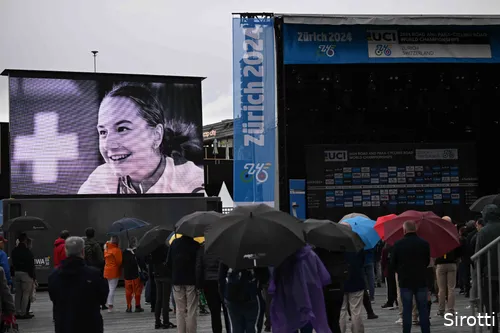
Press conference David Lappartient on tragic death of Muriel Furrer
"I am not going to give a long introduction, but I want to clarify that the World Championship has become special because of the tragedy that happened to all of us. This affects all stakeholders for this World Championship, especially Furrer's family and Swiss cycling. This World Championship should have been a big celebration, but because of this accident, it has become a different story."
ADVERTISEMENT
David, how do you feel about everything that has happened in recent days?
"I feel terrible about it. When we host a World Championship, it is the pinnacle of the cycling season and for the juniors who discover the World Championship for the first time. They discover the national team or a new country, which was not true for Muriel then. She lived two kilometers from where she crashed. Muriel was an ambassador for this World Championship, which makes it all very sad. You're not on a bike to die.
When we organize a World Championship, we want to bring people together for cycling. Of course, such an accident has an impact, also on us as the UCI. We are now investigating the accident with all parties who can contribute, but obviously, there is no time now for festivities like the UCI gala. Therefore, we will not have that happen either."
Does this affect the possible decision to ban radio communications?
"First of all, we don't know exactly what happened. The police are working hard to identify the circumstances of the crash, so we can't draw any conclusions about that at the moment. That's also why I don't want this crash to become an example for such conclusions; it's too early for that now. We have to wait for the police investigation."
ADVERTISEMENT
Has there been a moment when it was possible to call off the World Championship, and how is the contact with Furrer's relatives?
"We are not alone, so the decision to continue with the World Championship was made in consultation with all parties. We consulted heavily with Swiss Cycling, and there were several options to commemorate Muriel, but stopping the World Championship was not the best choice. However, continuing was not an option either, so we canceled many events around the World Championship. The sport continues, but everything else is at a minimum.
Through Swiss Cycling, we have shared our condolences with Furrer's family during this difficult time. They support allowing the World Championship to proceed this way."
Can you take us through what happened on Thursday?
"Again, it's up to the police to investigate what happened. We don't know the details of the accident, and it may take some time before we know exactly what happened. Based on that information we get, we have to decide what to share; we also have a crisis communication department within the UCI."
ADVERTISEMENT
Read more below the photo.
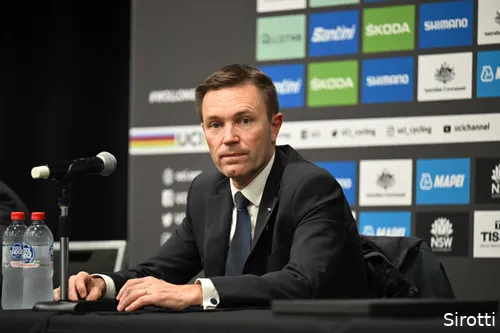
After Gino Mäder, it is the second time a young cyclist has lost his life in Switzerland. Should parents quietly ask themselves whether it is safe for their child to take up the sport?
"That's a good question. We are not in a soccer stadium, but the sport is practiced on public roads. Most crashes occur during training sessions, but crashes in races resonate more. As a parent, you're afraid to let your child ride a bike, so there must be increasingly more investment in good bike trails and so forth. That's going in the right direction.
Gino's crash was a very tragic one, but sometimes, we also don't know exactly what can happen. In his case, the roads were good, with no critical points. Safety has already improved, but there is also room for improvement. The difficulty is that there is more and more traffic infrastructure, especially around big cities. That is meant to slow cars down, but that is also difficult in a peloton at high speed. If you lose concentration momentarily, you're down on the ground in no time. Safety is not easy, but that is precisely why we want to work with all stakeholders to create a safer sport. Otherwise, as you say, parents do indeed get scared."
Do accidents like this cause the UCI, as the unit of the sport, to lose credibility?
"It always affects everyone. I gave my condolences on social media, but a journalist (Slovenian Matic Rupnik) responded with: it's your fault. So, I see that it affects the credibility of UCI or me as its president. Still, I repeat: we don't know the exact circumstances yet, so I can't say anything about this particular accident.
In general, I can say that we take responsibility when necessary because our mission is to create a safe environment for the athletes. However, safety is not one topic, as there are multiple causes. Cyclists' behavior causes half of the crashes in the peloton, so it is not always the fault of the organizer or the UCI. So, we need to work more collectively on this common problem. The thing is, it's getting harder and harder to organize races."
Read also
IDL-productions
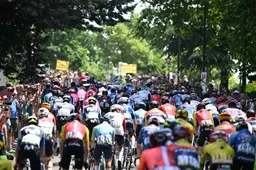
Vacancy: Growth Editor IDL Procycling - (native) English
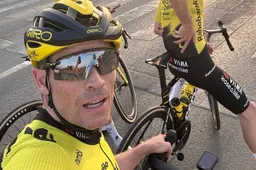
“Interviews showed we were close to cracking him”; Visma | LaB take hope from Pogacar’s Tour comments

After European Championship podium with Evenepoel and Ganna: how high is the ceiling for Unibet Rose Rockets’ new “steam train”?
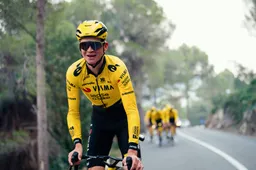
Tour of Oman 2026 | Visma | Lease a Bike and UAE’s ‘sherpas’ take up the challenge
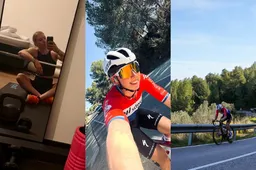
Winning machine Wiebes may get fewer chances at SD Worx-Protime after dream year
Latest Cycling News

Vacancy: Growth Editor IDL Procycling - (native) English

Almeida: “If everyone had fully worked together, we might still have caught Evenepoel”

De Vlaeminck refuses to call Van der Poel the greatest cyclo-cross rider ever: “I can’t enjoy watching this”
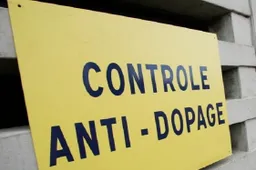
Banned US Postal doctor, linked to Marc Soler’s father, reportedly back around the peloton

Evenepoel drops Almeida and co with late attack to win Tour of Valencia queen stage
Popular Cycling News
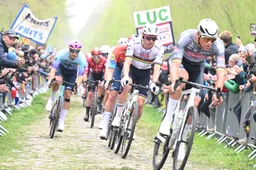
Jens Voigt: ‘It’s almost impossible for Pogacar to beat Van der Poel’
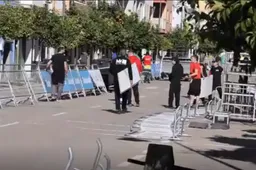
Evenepoel and Uijtdebroeks relieved after Valencia time trial ruling, but others furious: “It makes no sense”

“Interviews showed we were close to cracking him”; Visma | LaB take hope from Pogacar’s Tour comments
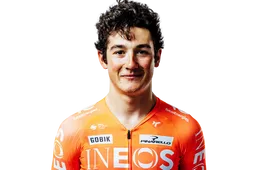
Clever move or dirty trick? August makes himself unpopular in Valencia
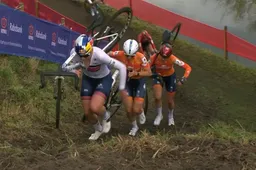
Elite debutant finishes third in the UAE Tour just five days after cyclo-cross World Championship
Latest Comments
- Nice!Bea22-01-2026
- Those events are mental rest for him. Fun, without expectations. *Sagan lost his abilities because he gained weight and got lazy. Pogi will likely retire before that has a chance at happening.Veganpotter14-12-2025
- Ah, the consequences of riding for Israel.Veganpotter11-12-2025
- Pidcock could follow everyone but Pogi while finishing 3rd. No second place rider this season😃Veganpotter16-11-2025
- Now the Palestinian protestors can stop their whining. Trump came to the rescue. So they can now STFU and go back to waving the rainbow flags.raufus15-10-2025
- Cracked the code lol. If it was that easy to 'crack the code' jonny Vegas would be charging up the Kwaremont giving Pog a dose of his medicine. Evenepoel can't match pog on a climb and neither can mvdp. Anything with a half difficult climb and Pog smashes the field. Even on flat(ish)parcours like Roubaix it came down to a mistake and crash by pog to definitively crown mvdp. MSR is the only one that Pog probably won't win.kevpt10-10-2025
- We've seen this movie before. I think Pogacar is doping.DeadBlow10-10-2025
- 👍Bea08-10-2025
- 👌🏻Bea08-10-2025
- What the data doesn't show is how much of an effect drafting had for evenepoel. Pogacar went with del toro at 100km whilst Evenepoel was still in the bunch. Despite the bike changes he still had a lot of assistance getting back to the bunch. Pogacar then rode 60km solo whilst evenepoel rode with Healy/Skjelmose until going solo in thd last 10-15km. Thats ~20% less power / energy requirements for 45-50km. Apples and oranges...kevpt30-09-2025
Loading
